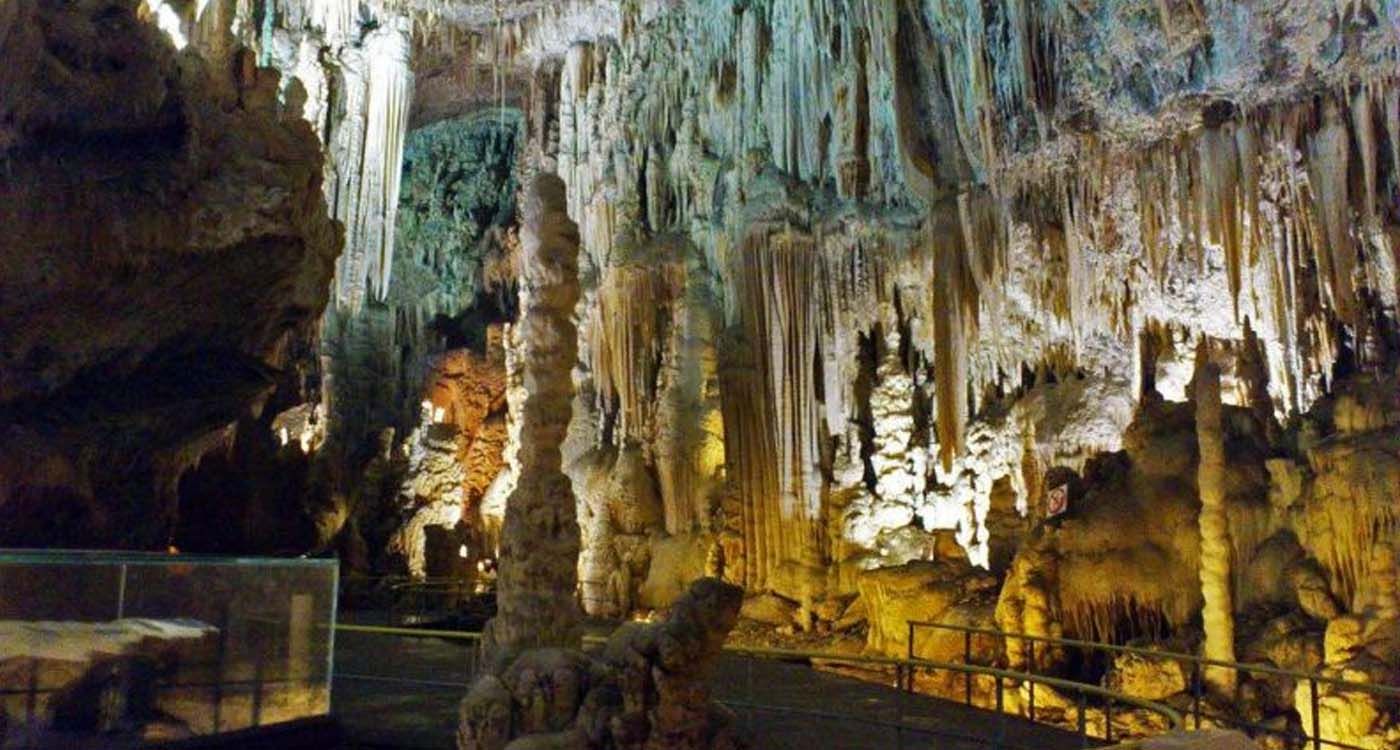
Jeita Grotto is temporarily closed. This was confirmed Thursday morning by Tourism Minister Laura Lahoud. Lebanon’s iconic karstic wonder is shutting its doors for the second time in less than a year.
The first closure came after the death of Mapas-Lebanon CEO Nabil Haddad in November 2024, leaving the site without an official manager for eight months until it reopened in July 2025.
This latest closure comes less than four months later, following the release of a video showing a party held inside the main cavern. The incident has highlighted, beyond the event itself, serious failures in coordination between the ministries involved and the municipality responsible for managing the site.
An iconic site taken lightly
“What’s happening at Jeita today is simply catastrophic,” says Khaled Abdel Malak, an experienced speleologist and member of the Lebanese Speleo Club, who has known the site for decades. “When you visit the grotto now, you notice its overall condition: inadequate cleaning, overuse of artificial lighting, algae and bacteria spreading. All of this damages the formations and disrupts the natural balance of the cave,” he told This is Beirut.
For him, the site’s deterioration is not new. It goes back to the management handed to Mapas-Lebanon in 1993, founded and led by Nabil Haddad until his death in 2024. “Haddad acted like a ruthless businessman. He treated Jeita as just another tourist site to profit from, with no respect for its scientific, ecological, or cultural value,” Abdel Malak said.
He points out that Jeita was originally a space for research and exploration recognized internationally. “Lebanon’s speleology pioneers, like Sami Karkabi and Georges Farra, who discovered the upper galleries in 1958, worked to preserve this natural jewel, not turn it into an amusement park,” he emphasized.
For more than thirty years, commercial interests have taken priority over scientific concerns. “Mapas ran an opaque operation with long-term contracts and questionable agreements. Nabil Haddad held the concession for 18, then 28 years, and managed the site as if it were his own property. Today, we are paying the price. The grotto is deteriorating, and the Lebanese state seems powerless to act,” Abdel Malak said.
The recent closure, the second in less than a year, underscores a deeper problem. “It is a symbol of failing management and of national heritage entrusted to incompetent hands. It is not just a cave being damaged, it is a part of Lebanon’s natural history that is being sacrificed,” he added.
The state shirks responsibility as accountability becomes unclear
On Thursday morning, Minister Laura Lahoud confirmed that, in addition to temporarily closing the site, a commission of experts would be set up to assess any potential damage. The commission will include a representative from the Lebanese Speleological Club to check whether the cave’s geological formations have been affected. The ministry also pledged to dedicate all its resources to support the investigation, following Prime Minister Nawaf Salam’s reminder on Wednesday that “any harm to natural resources is unacceptable.”
At the same time, the Ministry of Tourism sought to distance itself from the issue, noting that the grotto is currently managed by the Jeita municipality under a temporary arrangement while a long-term management contract is being prepared. “The Jeita municipality authorized the event without a written request, without prior consultation with the ministry, and without coordinating with the required experts,” the ministry said in a statement.
The municipality went ahead with the event outside official procedures. The ministry announced that it would send a warning letter and reminded the public of Circular No. 36/2025 from the Presidency of the Council of Ministers, which prohibits the use of public, archaeological, or tourist sites without prior authorization.
The Ministry of Environment also weighed in, stating it would take the strictest legal and administrative measures against those responsible to protect the grotto. The ministry also highlighted accelerated efforts to finalize regulations for the management of local tourist and archaeological sites.
The ministry emphasized that “Jeita Grotto falls under the administrative and regulatory authority of the Ministry of Tourism, which coordinates directly with the Jeita municipality and the relevant authorities for the management and operation of the site.”
The wording allows the ministries to avoid direct responsibility while expressing “great concern” and promising to participate in evaluating environmental impacts. The slow and fragmented response highlights, once again, the lack of coordination between the administrations tasked with protecting Lebanon’s natural heritage.
Jeita, a victim of fragmented management
The controversy began after local media shared a video showing a musical party inside the grotto. The incident quickly sparked debate on social media. Some criticized what they saw as an unacceptable trivialization of a protected site, while others defended it as a “cultural and promotional” initiative.
Walid Baroud, the head of the municipality, was quick to downplay the event, describing it as a “30-minute pre-wedding reception” with no food or drink, and saying that “all technical precautions had been taken.” He even compared it to similar events held “in caves around the world,” suggesting that promoting the site justified such activities.
These arguments reveal a fragile approach to heritage preservation. Tourism promotion is legitimate, but it should never come at the expense of a protected natural monument, which is subject to strict conservation rules.
Behind the official statements, the problem persists. Jeita Grotto is a clear example of a system where responsibilities overlap, accountability is unclear, and decisions are made on the fly. With the Ministry of Tourism focused on boosting economic activity and the Ministry of Environment lacking real authority, protecting the site appears to be a low priority.
The municipality defended its actions, claiming that any revenue generated would go toward restoring the long-neglected site. Yet the lack of clear guidelines, scientific oversight, and coordination between institutions points to a management style driven by short-term gains, where events take precedence over ecological care.
Between rushed local action and slow government response, Jeita Grotto, once a candidate for the “Seven Natural Wonders of the World,” has again become a victim of short-sighted exploitation. A symbol of Lebanon’s beauty but also of its improvisation, the grotto is a reminder that real care for a site comes not from bashes or excuses, but from serious governance and a deep respect for its heritage.




Comments